Libertarian perspectives on political alliances vary greatly, with controversies among libertarians as to which alliances are acceptable or useful to the movement.
| Part of a series on |
| Libertarianism |
|---|
Libertarian perspectives on political alliances vary greatly, with controversies among libertarians as to which alliances are acceptable or useful to the movement.
Many right-libertarians are political allies with neoliberals on social issues like the public role of religion (which they seek to minimize at least in government) and nontraditional lifestyles (which they generally defend).
Others, including Murray Rothbard's followers like Lew Rockwell, call themselves paleolibertarians and consider the traditionally religious and protectionist paleoconservatives to be their natural allies despite a sharp disagreement on trade issues. Paleolibertarians accuse other libertarians (whom they call "neo", "left", "lifestyle" and "beltway libertarians") of surrendering libertarian values to the political left in order to gain traction in Washington, D.C., and of undermining morality by opposing or denying religion. [1] Charley Reese of LewRockwell.com said that "a society without an underlying private morality will degenerate into a corrupt jungle. [...] I would rather live in a neighborhood of Islamic fundamentalists than in a neighborhood of atheists and agnostics. [...] [I]f we become an immoral people, we will eventually lose both our prosperity and our liberty". [2]
Friedrich Hayek's arguments in Why I Am Not a Conservative preempted the paleolibertarian movement. He argued that while libertarians (whom he called "liberals") could ally with conservatives in the short term, any fusion of the two movements would undermine their ability to defend liberty. Hayek's essay argues that alliances with conservatives are at best a necessary evil in the fight against state socialism, noting that there are deep incompatibilities because "the admiration of the conservatives for free growth generally applies only to the past. They typically lack the courage to welcome the same undesigned change from which new tools of human endeavors will emerge". [3] Still, Hayek's Road to Serfdom is used by conservatives to support their economic arguments. [4]
Another dimension of the controversy over libertarians' political alliances concerns Objectivists. Right-libertarians are often influenced by Ayn Rand's writings and have a similar agenda to that of Objectivists, but factions of the two groups are often in conflict (see Objectivism and libertarianism).

Friedrich August von Hayek, often referred to by his initials F. A. Hayek, was an Austrian-British academic, who contributed to economics, political philosophy, psychology, and intellectual history. Hayek shared the 1974 Nobel Memorial Prize in Economic Sciences with Gunnar Myrdal for work on money and economic fluctuations, and the interdependence of economic, social and institutional phenomena. His account of how prices communicate information is widely regarded as an important contribution to economics that led to him receiving the prize.

Gary Kilgore North was an American writer, Austrian School economic historian, and leading figure in the Christian reconstructionist movement. North authored or coauthored over fifty books on topics including Reformed Protestant theology, economics, and history. He was an Associated Scholar of the Mises Institute.

Murray Newton Rothbard was an American economist of the Austrian School, economic historian, political theorist, and activist. Rothbard was a central figure in the 20th-century American libertarian movement, particularly its right-wing strands, and was a founder and leading theoretician of anarcho-capitalism. He wrote over twenty books on political theory, history, economics, and other subjects.
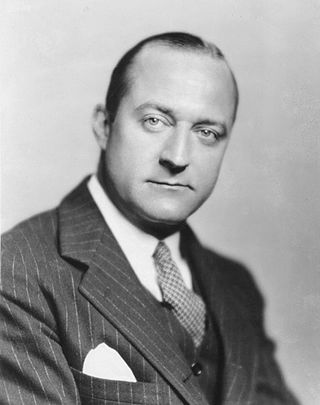
Henry Stuart Hazlitt was an American journalist who wrote about business and economics for such publications as The Wall Street Journal, The Nation, The American Mercury, Newsweek, and The New York Times.

Hans-Hermann Hoppe is a German-American academic associated with Austrian School economics, anarcho-capitalism, right-wing libertarianism, and opposition to democracy. He is professor emeritus of economics at the University of Nevada, Las Vegas (UNLV), senior fellow of the Mises Institute think tank, and the founder and president of the Property and Freedom Society.
The Ludwig von Mises Institute for Austrian Economics, or Mises Institute, is a nonprofit think tank headquartered in Auburn, Alabama, that is a center for Austrian economics, radical right-wing libertarian thought and the paleolibertarian and anarcho-capitalist movements in the United States. It is named after the economist Ludwig von Mises (1881–1973) and promotes his version of heterodox Misesian Austrian economics.
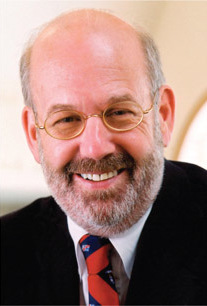
Llewellyn Harrison Rockwell Jr. is an American author, editor, and political consultant. A libertarian and a self-professed anarcho-capitalist, he founded and is the chairman of the Mises Institute, a non-profit promoting the Austrian School of economics.
Libertarian perspectives on foreign intervention started as a reaction to the Cold War mentality of military interventionism promoted by American conservatives, including William F. Buckley Jr., who supplanted Old Right non-interventionism.
Paleolibertarianism is a libertarian political activism strategy aimed at uniting libertarians and paleoconservatives. It was developed by American anarcho-capitalist theorists Murray Rothbard and Lew Rockwell in the American political context after the end of the Cold War. From 1989 to 1995, they sought to communicate libertarian notions of opposition to government intervention by using messages accessible to the working class and middle class people of the time. They combined libertarian free market views with the cultural conservatism of paleoconservatism, while also opposing protectionism. The strategy also embraced the paleoconservative reverence for tradition and religion. This approach, usually identified as right-wing populism, was intended to radicalize citizens against the state. The name they chose for this style of activism evoked the roots of modern libertarianism, hence the prefix paleo. That founding movement was American classical liberalism, which shared the anti-war and anti-New Deal sentiments of the Old Right in the first half of the 20th century. Paleolibertarianism is generally seen as a right-wing ideology.

Erik Maria Ritter von Kuehnelt-Leddihn was an Austrian-American nobleman and polymath, whose areas of interest included philosophy, history, political science, economics, linguistics, art and theology. He opposed the ideas of the French Revolution, as well as those of communism and Nazism. Describing himself as a "conservative arch-liberal" or "extreme liberal", Kuehnelt-Leddihn often argued that majority rule in democracies is a threat to individual liberties. He declared himself a monarchist and an enemy of all forms of totalitarianism, although he also supported what he defined as "non-democratic republics", such as Switzerland and the early United States. Kuehnelt-Leddihn cited the U.S. Founding Fathers, Tocqueville, Burckhardt, and Montalembert as the primary influences for his skepticism towards democracy.

Frank Straus Meyer was an American philosopher and political activist best known for his theory of "fusionism" – a political philosophy that unites elements of libertarianism and traditionalism into a philosophical synthesis which is posited as the definition of modern American conservatism. Meyer's philosophy was presented in two books, primarily In Defense of Freedom: A Conservative Credo (1962) and also in a collection of his essays, The Conservative Mainstream (1969). Fusionism has been summed up by E. J. Dionne, Jr. as "utilizing libertarian means in a conservative society for traditionalist ends."

The non-aggression principle (NAP), also called the non-aggression axiom, is the legal or moral rule that states that any person is permitted to do everything with their property except aggression, which is in turn defined as the initiation of forceful action, which is in turn defined as 'the application or threat of' 'physical interference or fraud ', any of which without consent. The principle is also called the non-initiation of force. The principle incorporates universal enforceability.
Charley Reese was an American syndicated columnist known for his conservative views. He was associated with the Orlando Sentinel from 1971 to 2001, both as a writer and in various editorial capacities. King Features Syndicate distributed his column, which was published three times per week.

Libertarianism is a political philosophy that upholds liberty as a core value. Libertarians seek to maximize autonomy and political freedom, emphasizing equality before the law and civil rights to freedom of association, freedom of speech, freedom of thought and freedom of choice. Libertarians are often skeptical of or opposed to authority, state power, warfare, militarism and nationalism, but some libertarians diverge on the scope of their opposition to existing economic and political systems. Various schools of libertarian thought offer a range of views regarding the legitimate functions of state and private power. Different categorizations have been used to distinguish various forms of Libertarianism. Scholars distinguish libertarian views on the nature of property and capital, usually along left–right or socialist–capitalist lines. Libertarians of various schools were influenced by liberal ideas.
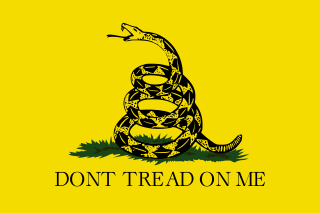
In the United States, libertarianism is a political philosophy promoting individual liberty. According to common meanings of conservatism and liberalism in the United States, libertarianism has been described as conservative on economic issues and liberal on personal freedom, often associated with a foreign policy of non-interventionism. Broadly, there are four principal traditions within libertarianism, namely the libertarianism that developed in the mid-20th century out of the revival tradition of classical liberalism in the United States after liberalism associated with the New Deal; the libertarianism developed in the 1950s by anarcho-capitalist author Murray Rothbard, who based it on the anti-New Deal Old Right and 19th-century libertarianism and American individualist anarchists such as Benjamin Tucker and Lysander Spooner while rejecting the labor theory of value in favor of Austrian School economics and the subjective theory of value; the libertarianism developed in the 1970s by Robert Nozick and founded in American and European classical liberal traditions; and the libertarianism associated with the Libertarian Party, which was founded in 1971, including politicians such as David Nolan and Ron Paul.
Right-libertarianism, also known as libertarian capitalism, or right-wing libertarianism, is a libertarian political philosophy that supports capitalist property rights and defends market distribution of natural resources and private property. The term right-libertarianism is used to distinguish this class of views on the nature of property and capital from left-libertarianism, a type of libertarianism that combines self-ownership with an egalitarian approach to property and income. In contrast to socialist libertarianism, right-libertarianism supports free-market capitalism. Like most forms of libertarianism, it supports civil liberties, especially natural law, negative rights, the non-aggression principle, and a major reversal of the modern welfare state.
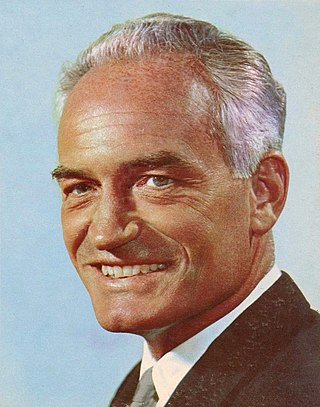
Libertarian conservatism, also referred to as conservative libertarianism and conservatarianism, is a political and social philosophy that combines conservatism and libertarianism, representing the libertarian wing of conservatism and vice versa.
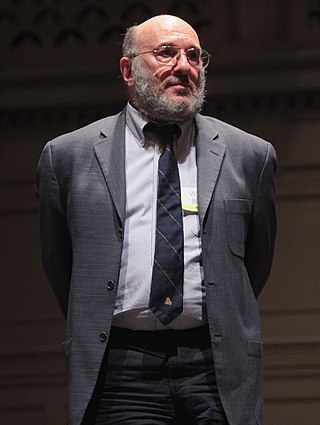
Walter Edward Block is an American Austrian School economist and anarcho-capitalist theorist. He was the Harold E. Wirth Eminent Scholar Endowed Chair in Economics at the School of Business at Loyola University New Orleans and a senior fellow of the non-profit think-tank Ludwig von Mises Institute in Auburn, Alabama.
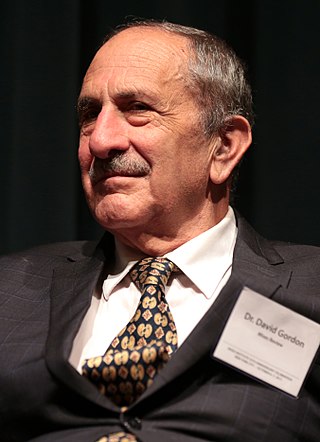
David Gordon is an American libertarian philosopher and intellectual historian influenced by Murray Rothbard's views of economics. He is a senior fellow of the Ludwig von Mises Institute, a libertarian think tank, and is the editor of The Mises Review.
The Libertarian Party in the United States is composed of various factions, sometimes described as left and right, although many libertarians reject use of these terms to describe the political philosophy.